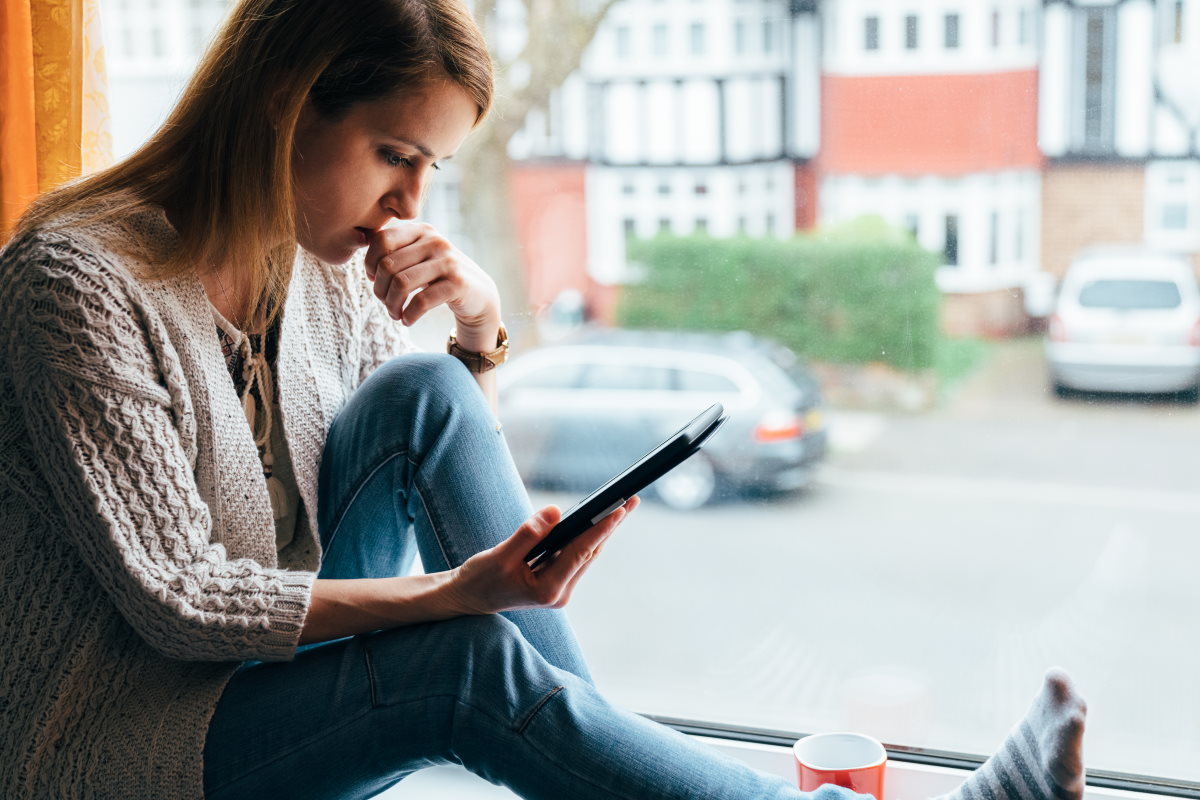The constant news about Coronavirus can feel relentless. With restrictions on movement and self-isolation coming into place, this is taking its toll on people's mental health, particularly those already living with mental health conditions like anxiety. So how can we protect our mental health?
Take breaks from social media
Social media can be an important resource to stay informed about coronavirus. But at the same time, it can be a trigger of feelings of anxiety and hopelessness.
Be careful about which social media accounts you follow and avoiding clicking on coronavirus hashtags. Have time away from social media by walking in the garden, watching TV or reading books instead.
- Mute key words which might be triggering on Twitter and unfollow or mute accounts
- Mute WhatsApp groups and hide Facebook posts and feeds if you find them too overwhelming
Keep in contact with friends and family
Check the phone numbers and email addresses of the people you care about so you can keep in contact during the self-isolation.
Agree regular check-in times and feel connected to the people around you. You can use WhatsApp video, FaceTime or other video communication to organise regular meet ups or check on elderly family members.
If you're self-isolating, keep a balance between having a routine and making sure each day has some variety. You can also use the time at home to catch up on work or hobbies.
Limit the news and be careful what you read
Being concerned about the news is understandable, but for many people it can make existing mental health problems worse.
The World Health Organization has released advice on protecting mental health during the coronavirus outbreak.
The fear of events being out of control and unable to tolerate uncertainty are common characteristics of many anxiety disorders. A lot of anxiety is rooted in worrying about the unknown and waiting for something to happen - coronavirus is that on a large scale.
Reading lots of news about coronavirus can lead to anxiety or panic attacks, especially for anyone living anxiety.
Sometimes feeling anxious can lead to thoughts spiralling out of control and thinking about bad outcomes. Is can include excessive worry about parents and other vulnerable people.
- Limit the amount of time you spend reading or watching things which aren't making you feel better. Perhaps decide on a specific time to check in with the news
- There is a lot of misinformation swirling around - stay informed by sticking to trusted sources of information such as government websites
Wash your hands - but not excessively
Obsessive Compulsive Disorder (OCD) is an anxiety disorder in which people have recurring, unwanted thoughts, ideas or sensations (obsessions) that make them feel driven to do something repetitively (compulsions). Many people have focused thoughts or repeated behaviours.
People with OCD can have their fears become more focused on the coronavirus pandemic.
For people with OCD and some types of anxiety, being constantly told to wash your hands can be especially difficult to hear. Advice about hand washing can be a huge trigger for people who have recovered. Those with OCD will have to do behaviours, like handwashing, which they may have been avoiding. The key is to look out for the function - for example, is the washing being carried out for the recommended amount of time to reduce the risk of spreading of the virus - or is it being done ritualistically in a specific order to feel "just right"?
Avoid burnout
With weeks and months of the coronavirus pandemic ahead, it is important to have down time. Continue to access nature and sunlight wherever possible. Do exercise, eat well and stay hydrated.
- Acknowledge: Notice and acknowledge the uncertainty as it comes to mind.
- Pause: Don't react as you normally do. Don't react at all. Pause and breathe.
- Pull back: Tell yourself this is just the worry talking, and this apparent need for certainty is not helpful and not necessary. It is only a thought or feeling. Don't believe everything you think. Thoughts are not statements or facts.
- Let go: Let go of the thought or feeling. It will pass. You don't have to respond to them. You might imagine them floating away in a bubble or cloud.
- Explore: Explore the present moment, because right now, in this moment, all is well. Notice your breathing and the sensations of your breathing. Notice the ground beneath you. Look around and notice what you see, what you hear, what you can touch, what you can smell. Right now. Then shift your focus of attention to something else - on what you need to do, on what you were doing before you noticed the worry, or do something else - mindfully with your full attention.


